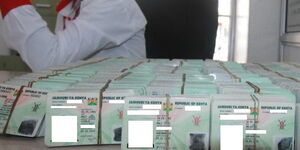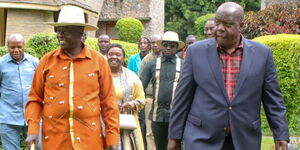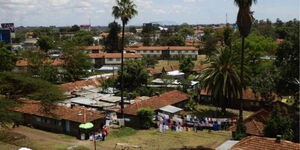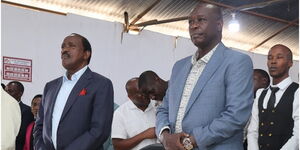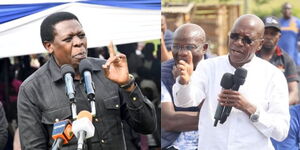American billionaire and philanthropist Bill Gates has disclosed that a meeting with United States President Donald Trump is on the horizon.
While speaking to the BBC, Gates revealed that the meeting would be aimed at finding a compromise on the halting of funding aid to Africa, as was seen in the disbandment of the United States Agency for International Development (USAID).
Gates noted that the meeting would be necessary in addressing the hardline stance adopted by the US toward Africa, which has heavily affected countries such as Kenya.
"I am sure in the next three to four months I will get a chance to share my thoughts with him (Trump). I will make a strong case that the US should stay involved (in aid funding). I will be as loud as I can on Trump’s aid cuts,” Gates stated.
At the same time, Gates criticised the nature of the implementation of the cuts noting Trump’s administration could have gradually cut the funding. Gates noted that despite the presence of philanthropists to assist, the drastic halting of the aid effectively curtailed any strategies that could be employed to mitigate the situation.
“If we were more on the range of 20 to 30 per cent, I think we could minimise the damage. In fact, with the innovations, we could potentially mitigate the situation,” he stated.
Upon assuming office in January this year, Trump signed an executive order directing a 90-day pause in foreign development assistance, affecting programs such as USAID. He also ordered the immediate withdrawal of the US from the World Health Organisation (WHO).
The order, among many Trump signed on his first day back in the office, said "the foreign aid industry and bureaucracy are not aligned with American interests and in many cases antithetical to American values” and “serve to destabilise world peace by promoting ideas in foreign countries that are directly inverse to harmonious and stable relations internal to and among countries.”
In Kenya, USAID provided emergency food assistance and therapeutic nutrition to refugee populations and host communities.
When natural or man-made disasters occurred, USAID delivered humanitarian aid, including emergency health and nutrition services, safe drinking water, hygiene kits, and other relief supplies.
Cumulatively, the US disbursed over Ksh80 billion annually to fund critical programs in Kenya, such as the President's Emergency Plan for AIDS Relief (PEPFAR), the Malaria Initiative, and the Global Health Security Agenda.
Apart from the halting of funding aid, Gates cited the recent imposition of tariffs as counterproductive to the growth of the African continent.
Notably, Gates revealed that African countries were to be hit with bigger tariffs but intervention from influential people put a stop to the proposed tariffs.
On Wednesday, April 2, President Trump signed a new executive order imposing reciprocal tariffs on trade with Kenya.
Under the new tariffs signed by Trump, Kenya's Ksh109.7 billion (784 million USD) trade with the US was set to suffer a blow after a ten per cent baseline tariff on all of Kenya's exports.
The tariff would affect Kenyan exports, particularly in key sectors such as textiles, tea, and coffee, which have been exempt from tariffs under the African Growth and Opportunity Act (AGOA).


